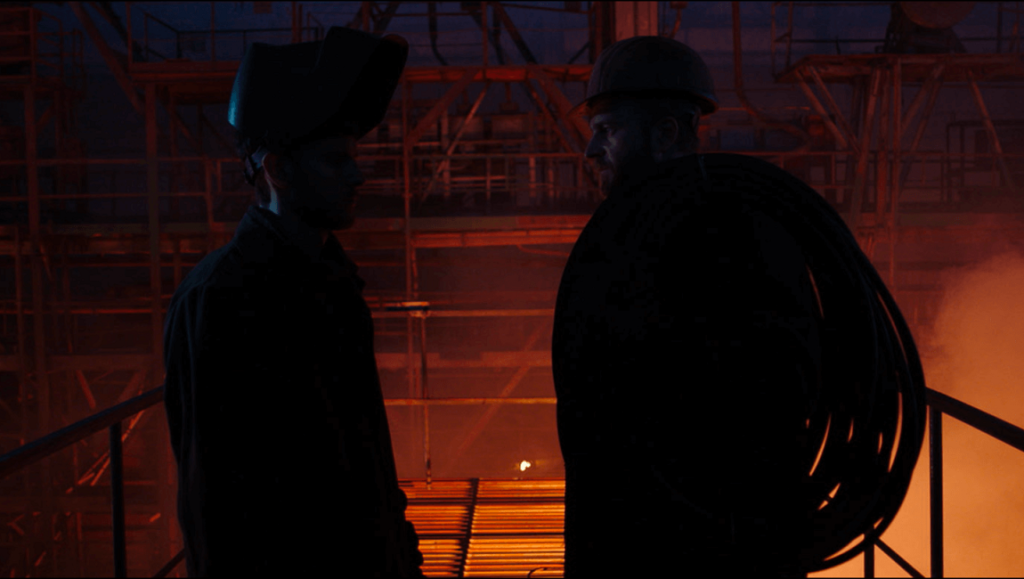Atlantis is an unsettling, poignant study of the casual violence that both informs the past and estimates the future.
With Atlantis, director Valentyn Vasyanovych (also editor and cinematographer here) has created a dystopian nightmare out of Ukraine’s current political and social quagmire with Russia. Like some kind of unholy amalgamation of Andrei Tarkovsky’s Stalker and Sergei Loznitsa’s 2018 film Donbass, Atlantis imagines a futuristic, liberated Ukraine that nevertheless is in ruins. Huge swaths of land are uninhabitable, drinking water is scarce, and bombed-out factories litter the landscape (any similarities to Chernobyl are clearly intended). Of course, part of Vasyanovych’s point here is that, despite the vague sci-fi genre trappings, things don’t look that different from the normal stages of late capitalism (Even more intriguing? The notion that this nod towards speculative fiction gives the film, and filmmaker, some cover from government meddling. Regardless, Mad Max: Fury Road this is not). Atlantis consists of 28 individual scenes, each a discrete unit separated by a hard edit (with one exception involving an uncharacteristically gentle dissolve). By my count, 5 of these scenes involve camera movement of some sort; otherwise, the compositions are locked-down master shots, with a shallow depth of field that creates a kind of large-scale tableau. It’s a disturbing distancing effect, as we watch Serhiy (Andriy Rymaruk), a former soldier dealing with PTSD, first working at a huge metal refinery and then taking to the road to deliver potable water to areas affected by the war. Along the way, we gradually learn a few scattered details about what has happened. But traditional plotting isn’t particularly important here.
Serhiy eventually meets Katya (Liudmyla Bileka), an archaeologist who now volunteers with an organization that digs up and identifies bodies of soldiers who were left behind enemy lines during conflict. In her words, she is giving the families of these men closure, allowing the war to finally end for them. The great lost city of Atlantis has been part of the popular imagination for centuries; here, the myth is reconfigured to suggest a kind of subterranean society that exists just below the surface, a world of corpses, victims of torture, and other atrocities. As we watch several scenes of graphic autopsies unfold, in real time, it becomes clear that Vasyanovych is interested in a moral reckoning of sorts, a clear-eyed confrontation with the past. The first scene of the film is an overhead view of three figures beating someone to death, and burying them. It’s filmed in infrared, obscuring the more grisly details and turning bodies into ghastly digital artifacts; the overhead position suggests a god’s-eye view, or a drone or satellite (or an implied audience). The end of the film is shot in the same way, as Serhiy and Katya embrace. By imposing the same visual graphics over a different scene — a scene of great tenderness, it should be noted — Vasyanovych seems to be suggesting that the act of violence that opens the film has colored everything that has come after. Serhiy and Katya are alive, but they haven’t really escaped; they’ve become the ghosts, while the past will live on, whether we want it to or not.
Originally published as part of Toronto International Film Festival 2019 | Dispatch 6.


Comments are closed.